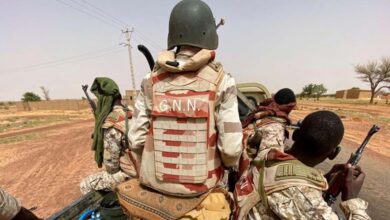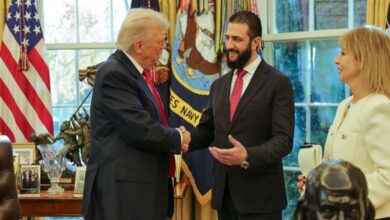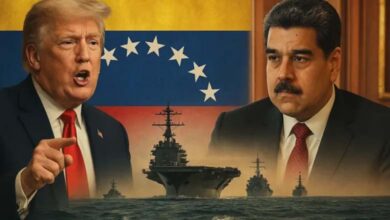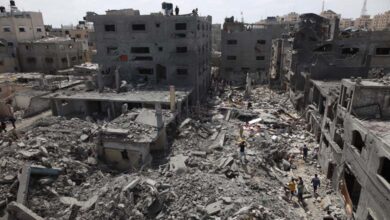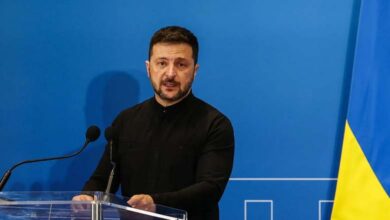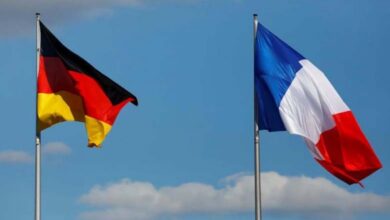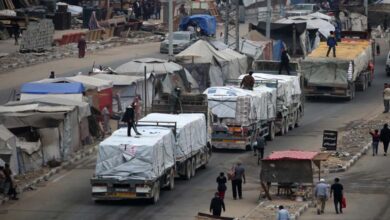Extension of MINURSO Mission: Diplomatic Victory for Morocco and Setback for Algeria
Morocco states that, through this resolution, the Security Council reaffirms that the political solution must be realistic, pragmatic, durable, and based on consensus, which are core elements of the Moroccan autonomy initiative.
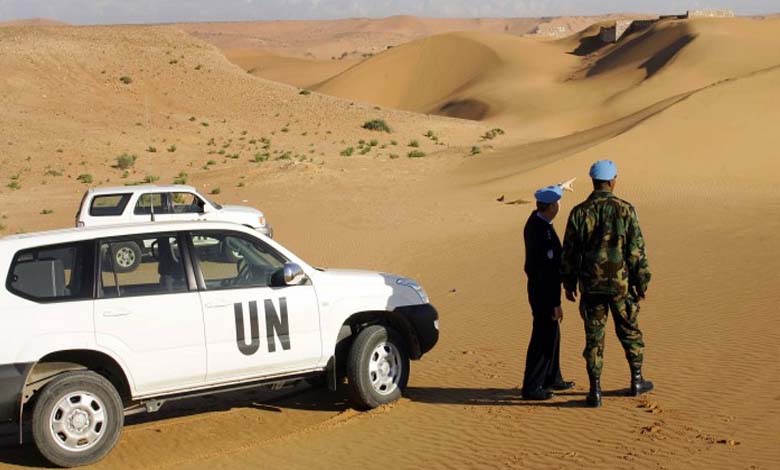
On Thursday, the United Nations Security Council called for a “realistic and acceptable” political solution for the Moroccan Sahara, disputed between Morocco and the Polisario Front supported by Algeria, in a resolution that extended the UN mission’s mandate for an additional year. This decision was welcomed by Rabat, which viewed it as a diplomatic victory endorsing its autonomy proposal and approach to ending the conflict, while it was perceived as a major failure for Algeria, which boycotted the vote after its amendments were rejected.
-
“The Moroccan Sahara”: Macron supports Rabat’s plan
-
France Stimulates Its Companies with Financial Support to Invest in the Moroccan Sahara
The resolution, proposed by the United States, extends the mandate of the United Nations Mission for the Referendum in Moroccan Sahara (MINURSO) until October 31, 2025.
It emphasizes the need to reach a “realistic, feasible, sustainable, and mutually acceptable political solution” for this former Spanish colony, a stance supported by Morocco.
Morocco backed the resolution, noting that it comes in a context marked by an irreversible process led by King Mohammed VI in favor of the kingdom’s territorial integrity, along with growing support from permanent Security Council members and influential countries for Moroccan sovereignty over the Sahara and the Moroccan autonomy initiative. This position is further bolstered by the continued withdrawal of recognition of the fictitious “Sahrawi Republic,” according to a statement from the Moroccan Ministry of Foreign Affairs.
-
Switzerland Supports a Realistic and Acceptable Political Solution to the Moroccan Sahara Issue
-
France opens up to investment in the Moroccan Sahara
The statement also highlights that the resolution adopted on Thursday preserves all achievements Morocco has gained and introduces important new elements for the future development of this issue within the United Nations.
The text enshrines the framework, parties, and objective of the political process. Accordingly, the Security Council reaffirms that roundtables are the only forum for discussions to reach a political solution to the regional dispute over the Moroccan Sahara.
-
Biden Proposes Diplomat Supportive of Moroccan Sahara as Ambassador to Algeria
-
Bourita: The Moroccan Sahara issue is no longer on the agenda of the African Union
The resolution clearly identifies the parties in conflict, notably Algeria, mentioned more frequently than Morocco. Furthermore, the Security Council reaffirms that the political solution must be realistic, pragmatic, durable, and consensus-based, core elements of the Moroccan autonomy initiative, whose preeminence is confirmed. Moreover, Resolution 2756 introduces two significant advancements that strengthen Morocco’s stance.
The resolution notes that the Security Council “endorses the international momentum surrounding the Moroccan Sahara dossier under the leadership of King Mohammed VI, in favor of Moroccan sovereignty over the Sahara and the Moroccan autonomy initiative.”
-
The broader opening towards Morocco brings Niger closer to an official recognition of the Moroccan Sahara
-
Calls urging Britain to end its hesitation in recognizing the Moroccan Sahara
Furthermore, the text stresses that henceforth, United Nations actions can only align with this momentum.
The Moroccan Ministry of Foreign Affairs also praised the Security Council’s call to other parties “to avoid actions that could undermine the political process,” addressing the Polisario and its Algerian support after failed attempts to destabilize the Sahara region.
The Security Council thus reflects Morocco’s clear official stance by asserting that there is no political process without respect for the ceasefire.
-
Saudi Arabia consolidates its support for the Moroccan Sahara Internally and Externally
-
The Non-Aligned Movement Triumphs for Realism as a Solution to End the Conflict in Moroccan Sahara
Twelve of the fifteen Council members approved the resolution. Algeria did not vote, as its amendments were rejected, and Russia and Mozambique abstained.
The Moroccan Ministry of Foreign Affairs interpreted this majority vote and Algeria’s abstention as “a sign of the isolation of this country’s position within the Security Council and the international community,” highlighting “Algeria’s blatant contradiction: it claims to defend international legitimacy and Security Council decisions while refusing to support these efforts and continuing its obstructionist stance.”
-
Washington exposes Algeria’s falsification of its position on the Moroccan Sahara
-
U.S. moves to expedite resolution of the fabricated conflict in the Moroccan Sahara
The text calls on the parties to “renew their commitment to advancing the political process” and considers that “the status quo is unacceptable.”
The Moroccan Sahara, a former Spanish colony covering 266,000 square kilometers with significant fishery resources and large phosphate reserves, has been at the center of a dispute between Morocco, which controls approximately 80% and proposes autonomy under its sovereignty, and the Polisario Front, which demands a UN-sponsored self-determination referendum as stipulated in the 1991 ceasefire agreement.
-
Morocco-US rapprochement, diplomatic victories embarrass France on Moroccan Sahara issue
-
Moroccan Sahara: International Ministerial Meeting Promotes ‘Consular Diplomacy’
Since 1975, Morocco and the Polisario Front have contested sovereignty over the Sahara, while Morocco has achieved several diplomatic victories in recent years, including the United States’ recognition of Moroccan sovereignty over the Sahara and support for its autonomy initiative to resolve this conflict.



